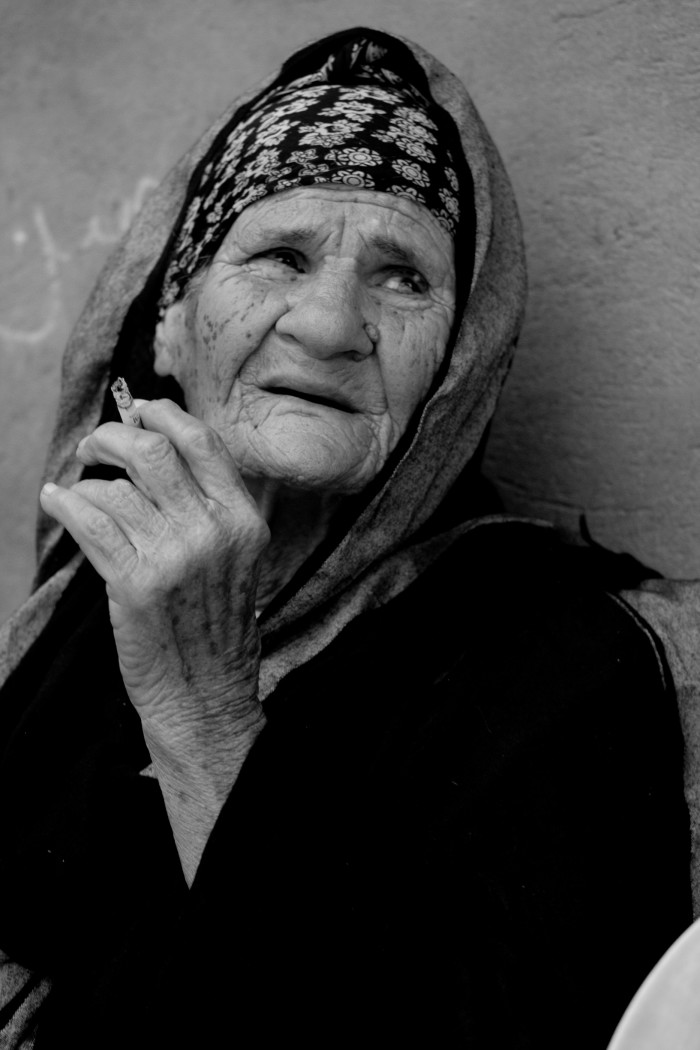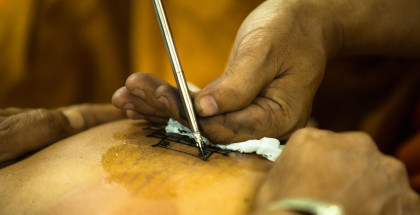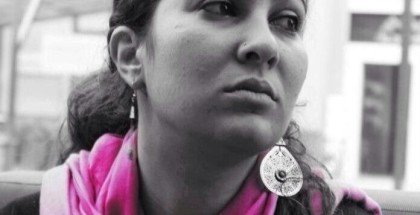Stories of Women from Egypt: Fatma the Maid
July 17, 2013 | Rana Kamaly 2
“This is not clean Fatma, clean it again.” This phrase is often repeated by those who have domestic help, but seldom are other conversations exchanged. We seldom consider the other side of a maid’s life, outside the confinement of the house she serves at.
For a long while, our maid, Fatma, would come to work with bruises all over her face. I would catch her touching her back in pain while she cleaned the floor or massaging her shoulder in agony while she cleaned the glass.
I would ask her what happened, but she would give me lame stories that I knew weren’t true. After nine years of knowing her, Fatma finally hesitantly told me her story and gave me permission to publish it provided I do not use her name.
Fatma, the maid
She is 46 years old, a mother of two and in good shape despite the limp in her left leg caused by a beating session from her ex husband. She has a dark bronze skin, medium built and always covers her hair. She is confident and sassy and would argue with our guard, dry cleaner, supermarket man and just about everyone. But when it came to sharing her personal life, she was as shy as a guilty three year old.
“From the very first day of our marriage I knew my life was going to get harder than it already was. On our first night, he asked me if I had any money, I gave him what I had and he left and didn’t return until the next morning,” says Fatma with a deep, sad and angry voice. “I should have run away when I had the chance. I should have ran when I was still [unburdened with the kids],” she sighed.
Her husband would take whatever she had and force her to find a job so she can contribute to his drug addiction. “I thought that I could change him; I didn’t know he was really an addict as he only smoked hash, but if he beats me up and steals from me for it, then its as bad as real addiction,” she said.
A couple of months into their marriage, her husband left his job as a minibus driver. He didn’t feel ashamed that he was unemployed and didn’t try to find a job, she said, and proceeded to take her money . “Even after I gave birth to my first child, he didn’t stop. I naively thought that a child would straighten him up, but clearly I was wrong,” Fatma says.
It wasn’t until after her second child that the beating started. “After we realized that our second son is a bit mentally challenged, everything changed to the worse. I had to work, take care of my kids on my own and give him money. I thought about escaping a few times, but I had no place to go. At least with him I had a house,” says Fatma.
I asked Fatma about why he beat her that day that she got the limp, but she didn’t answer, I tried everything but it wasn’t easy for her to tell that story. So I stopped trying and stayed silent waiting for her to say anything, she remained seated with her eyes fixed on the floor and then she murmured as tears rose to her eyes, “I just didn’t want to do it. But we did it anyways.” She wiped her tears quickly, stood up and left to finish up her work.
A week later, she came to me to finish her story. “I did nothing wrong and he is my husband, after all, what should have I done? When your man asks for something you will give it, no matter what. So you’d better give it willingly,” she says with a muted, angry voice.
After this beating session, Fatma couldn’t work for a while so her husband couldn’t take any more money from her, so he took off, only to come back a few days later and kick them all out of the house.
“We really had no place to go. My parents are dead and I have no family in Cairo and the ones in the countryside are too poor to take a mother and two teenagers in,” says Fatma.
So her elder son, 15, took a job that paid LE500 a month to support himself. They found themselves an empty rooftop in the slums of Helwan. “Things were very bad at the time, I really couldn’t walk at all, my knee was smashed. But with God’s help and my costumers’ donations, I walked again, although with a limp,” Fatma recounts.
She then went back to work but she was never the same, “I have to admit my performance is worse than before, I have to drag my leg behind me, but I really do my best. I didn’t take the full load of work, I only went back to my regular customers,” she says.
“After my husband left, I helped my kids get simple jobs, but I insisted that they finish their school education, to at least be able to read and write and not be ignorant like me. Then they went ahead and got married to two housewives,” she stopped and sighed. “Don’t get me wrong I really love it that they got married and that I now have two grandkids. But my duties tripled in no time, and my health and age are deteriorating,” she says.
Her mentally challenged son got married to a mentally challenged woman and had a kid, and since he can’t maintain a proper job, Fatma contributes most her income into her son’s expenses and the remaining sum goes to her other son. “With my challenged son, I just have to do everything, as his wife is very weak and can’t take care of her home, husband or kid,” says Fatma.
Last month Fatma retired from her job to stay with her grandson as his mom suffers severe epilepsy and almost killed her baby once during a seizure.
Read more from our series Stories of Women From Egypt:
-
You shook my feelings, you talked every word with human in me, you made me trembled from inside out, you took my senses along with my thoughts till the end, finally you lift me with a lot of anger to the poverty & ignorance in the cruelty of Manhood, you took the cover away
-
I simply love it 🙂 bravo…



























Comments